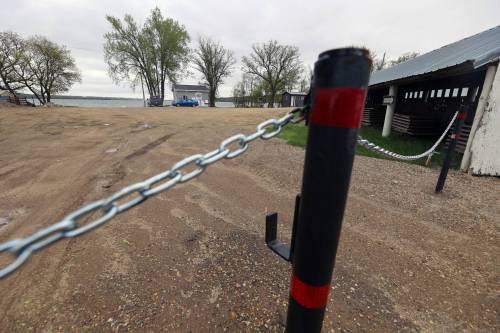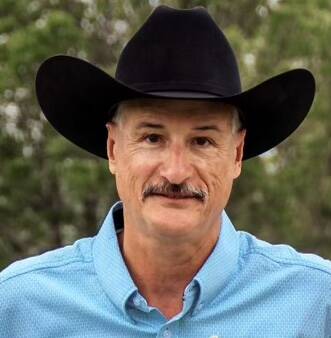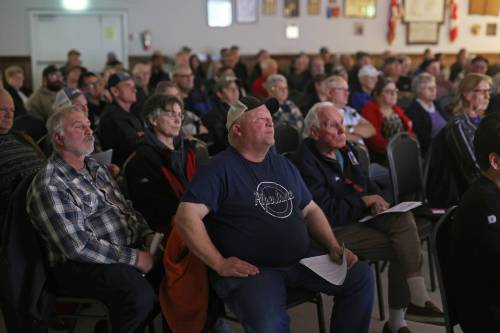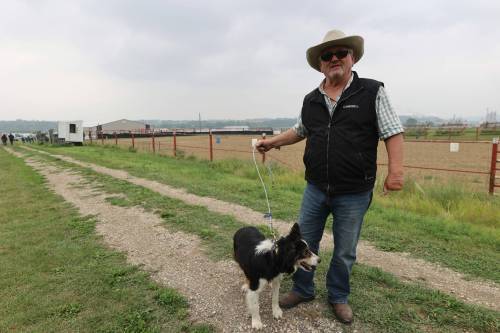Westman this Week
Free tax clinics return to western Manitoba
2 minute read 2:01 AM CSTA free volunteer-run tax program that returned more than $10 million to residents across western Manitoba last year is gearing up again for the 2026 tax season.
The Community Volunteer Income Tax Program (CVITP), offered in partnership with the Canada Revenue Agency and Prairie Mountain Health (PMH), helps low-income individuals with simple tax situations complete and file their income tax and benefit returns at no cost.
In 2025, volunteers across the PMH region processed 4,350 returns, resulting in more than $10 million in benefits and refunds for residents. The average refund per client was about $3,500.
Organizers say filing a tax return is often the gateway to accessing critical income supports, including GST credits, the Canada Child Benefit, Manitoba Rent Assist, disability tax credits and Pharmacare deductibles.
Advertisement
Prairie Lakes to bring back boat restrictions
6 minute read Preview 2:00 AM CSTFinally, some smiles from Sabres’ fans
5 minute read Preview 2:00 AM CSTA day at the Koch Fertilizer plant
1 minute read 2:00 AM CSTThe Brandon Sun visited the Koch Fertilizer plant in February for a guided tour of the facility during a day of operations.
The pictures that follow are a look at the machinery and people that work behind the scenes at the plant to support massive fertilizer production in Brandon.
Noteworthy sights from the Sun’s tour were an in-house fire station, a custom fire hydrant system, a 12,550-horsepower steam-powered turbine, a computer control room, a dock that loads fertilizer directly onto train cars, and a 24-7 station where truckers can fill tanks for distribution across the prairies.
Plant manager Rodi Sveistrup said that the primary use for the products is agricultural, to supply to local farmers in Manitoba and Saskatchewan. Over the last 2 years the facility has loaded on average 17,000 trucks and 4,000 railcars per year of fertilizer to supply those customers. The reason the plant is located in Brandon is because it supports a local market, Sveistrup said.
The Chinese lunar year has turned and 2026 is designated as the Year of the Horse. And with the Royal Manitoba Winter Fair coming up — where there will be plenty of horses — it’s the perfect time to hear from a farrier: a skilled professional who ensures horses keep their equipoise.
Ethan Radstrom, 51, is a Manitoba-born farrier who began his apprenticeship 26 years ago. At the same time, he began learning how to handle hammer and tongs to make horseshoes, which led him to his “parallel” career as a blacksmith. Today, he runs Prairie Hammer Metalworks.
Radstrom began working as a groom at racetracks across the country. Luck was with him in Montréal where he was hired on with Cheval Theatre, a touring circus show started by a former director of Cirque du Soleil. The farrier in charge asked him if he would like to learn the work.
“After that first year, he left the show and we began hiring horseshoers in every city where we would set up. We hired the very best farriers in every region. I had the good fortune of working with some very good farriers during my initial apprenticeship,” Radstrom said.
Reputations stained, but greatness memories linger
5 minute read Preview Thursday, Feb. 19, 2026Strychnine use too risky, conservationist warns
5 minute read Preview Thursday, Feb. 19, 2026Powwow nominated for tourism awards
2 minute read Preview Thursday, Feb. 19, 2026Bright future for conservancy after 40 years
5 minute read Preview Thursday, Feb. 19, 2026Master gardeners celebrate Seedy Saturday
5 minute read Preview Thursday, Feb. 19, 2026Westman ski season off to good start
4 minute read Preview Thursday, Feb. 19, 2026Virden auctioneer takes shot at world title
5 minute read Preview Thursday, Feb. 12, 2026Portage research farm victim of national cuts
2 minute read Thursday, Feb. 12, 2026The federal government has confirmed the closure of seven Agriculture and Agri-Food Canada (AAFC) facilities across the country, including a satellite research farm in Portage la Prairie.
The announcement follows news that 665 AAFC jobs are being cut as the department looks to identify savings over the next three years. Alongside the Portage la Prairie site, satellite farms in Nappan, N.S., Scott, Sask., and Indian Head, Sask., will be shuttered. Major research and development centres in Guelph, Ont., Quebec City, Que., and Lacombe, Alta., are also slated for closure.
In a statement, AAFC said the wind-down of scientific operations could take up to 12 months, and it remains too early to determine final workforce impacts.
Colin Hornby, general manager of Keystone Agricultural Producers (KAP), said the industry is still assessing how the loss of local specialized research will affect growers. The Portage la Prairie site has historically focused on the horticulture sector, including fruits, vegetables and potatoes.
Westman CAO flags hostility as issue in the province
6 minute read Preview Thursday, Feb. 12, 2026Stock dog clinic to return to Minnedosa
4 minute read Preview Thursday, Feb. 12, 2026Prognosticator picks U.S. to win gold
5 minute read Thursday, Feb. 12, 2026Canada’s men’s Olympic hockey team begins its quest for gold Feb. 12 vs. Czechia and, of course, this calls for a bold prediction: Canada will not win gold.
Now, before you go talking to government officials to get me kicked out of the country or to have my citizenship revoked, an explanation is required: In my career as a prognosticator of sporting events, my record is horrendous. I believe it’s 3-672 over the years, which means I’m wrong 99.555 per cent of the time. If I were to be so bold as to pick Canada to win, and they lost, the blame would fall squarely on my shoulders and, deep down, I want nothing more than for Canada’s best to stick it to the rest of world, especially those loud-mouth Americans who were vanquished in last winter’s 4 Nations Face Off.
If things go as Vegas oddsmakers would have you believe, it will be Canada vs. the U.S. in the gold medal game at the Milano Santagiulia Ice Hockey Arena on Sunday, Feb. 22.
The U.S. team is favoured in many quarters primarily because its three goalies — Connor Hellebuyck, Jake Oettinger and Jeremy Swayman — are considered vastly superior to Canada’s troika of Jordan Binnington, Logan Thompson and Darcy Kuemper. But Binnington, whose stats this season with the woeful St. Louis Blues are enough to scare any Canadian hockey fan, pushed his ‘sensational’ button and combined it with his ‘spectacular’ switch last year and stopped the U.S. cold in the 4 Nations clinching game. Connor McDavid, the best player in the world, did the rest, potting the overtime goal on a pretty setup by Mitch Marner.
LOAD MORE











